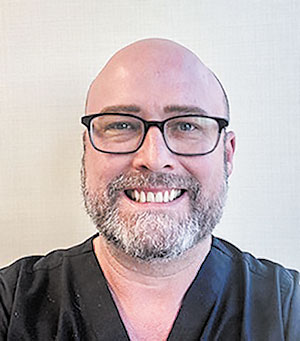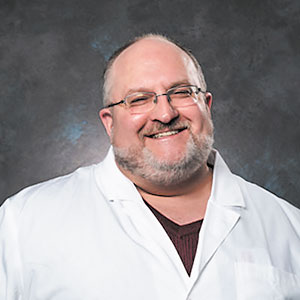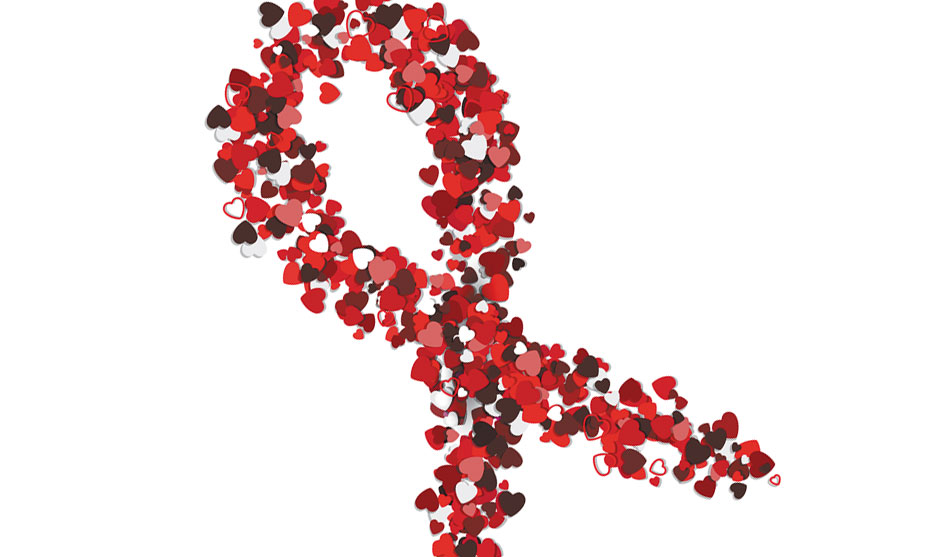New HIV infection rates are falling, and treatments are improving. But do we have the political will to end HIV/AIDS?
TAMMYE NASH | Managing Editor
nash@dallasvoice.com
In 2019, according to the U.S. government’s HIV website HIV.gov, there were an estimated 34,800 new HIV infections in the United States and its six dependent areas (American Samoa, Guam, the Northern Mariana Islands, Puerto Rico, the Republic of Palau and the U.S. Virgin Islands) plus The District of Columbia. That was down by about 8 percent from 2015’s new infections numbers of about 37,800, with the decrease coming after a period of relative stability.

Bryan King, LVN, CRCC
In 2020, 30,635 people were newly-diagnosed with HIV in the U.S. That is a 17 percent decrease from 2019. But, as the website notes, at least some of that decrease is likely attributable to the impact of COVID on HIV prevention, testing and care-related services, which means new infections that year were likely under-reported that year.
Even with those decreases in the rate of new infections, as of Oct. 27, 2022, there are about 1.2 million people in the U.S. who have HIV, and about 13 percent of them do not know they have the virus and are in need of testing, according to HIV.gov.
HIV continues to have a disproportionately large impact on men who have sex with men (71 percent of new diagnoses in 2020), and even more so men of color who who have sex with men (Black/African-American MSM accounted for 26 percent of all new diagnoses in 2020, and Hispanic/Latino MSM for 21 percent).
More than half of the new diagnoses in 2020 occurred in people ages 13-34 (57 percent), and of all the people newly diagnosed that year, more than half (51 percent) lived in the South.
Stronger educational and testing efforts certainly account for some of the decrease in new infections. But so do advances in treatment. And at least two clinics in Dallas are among those participating in trials and other research aimed at, first, controlling and, ultimately, ending the AIDS pandemic.
Dallas Voice this week talked with representatives of North Texas Infectious Disease Consultants and Prism Health North Texas regarding research in which they are involved and their thoughts on where to go from here.

Dr. Gary Sinclair
Dr. Gary Sinclair is the physician who serves as principal investigator for multiple clinic trials at Prism Health. Bryan King, LVN and CCRC, is vice president of clinical research and business development with NTIDC.
Dallas Voice: What, in your opinion, is the most effective treatment available right now for HIV/AIDS?
Dr. Gary Sinclair: It really depends on the patient. There are many effective treatments, but there is no one size fits all.
Bryan King: Biktarvy and Dovato, both single tablet regimens (STR), continue to be the most convenient and effective regimens in use today. Cabenuva is the newest and first long acting Injectable treatment, and it has shown to be as effective as the STR and very convenient, with an every-two-month dosing schedule. Unfortunately because It is a new drug we have had problems with reimbursement and access to sites that can provide the injections on a regular basis.
What treatments are in the works now, and when can we expect them to be available?
Sinclair: I am an investigator on the clinical trials that are bringing those new treatments to market. I am afraid I am not allowed to comment as the investigations are ongoing. Ask me in a few months.
King: Gilead’s Lenacapavir is the next long-acting injectable treatment due to be FDA-approved. It’s FDA approval will be for adults with multi-drug resistant HIV infection for whom it is otherwise not possible to construct a suppressive anti-viral regimen. It is the first in its class of capsid inhibitors which will help patients whose virus are no longer responding to their current regimens. Merck is working on an investigational nucleotide reverse transcriptase translocation inhibitor (NRTTI) called Islatravir that is another potential long-acting medication that is currently in phase 3 clinical trials.
We continue to work with other pharmaceuticals in early phase trials looking at broadly neutralizing antibody (bnAb) which is at the forefront of the most exciting HIV research going on today. It has the potential for even longer time between dosing, which helps with compliance keeping the patients undetectable and untransmittable. All of this helps in the fight to eradicating HIV/AIDS.
Is it the actual medications themselves that are making the difference, or is it the method of delivering the medications where we are seeing the most change and increase in effectiveness?
King: Most all of the current medications we use are very effective, but I think the delivering methods is what has made the difference over the years. Taking a single tablet regimen once a day or receiving two injections every two months is a very effective to help keep patients compliant with taking their medications.
Sinclair: Again, it depends on the patient. We have pills, and we have injectables. It is about fitting the right tool to the right situation.
How big of a difference are the new injectables making in the effectiveness of HIV/AIDS treatments?
Sinclair: A lot! We have patients who have never been able to adhere to a single tablet regimen who are doing well on every-two-month injections. It has been very gratifying.
King: I want to make it clear that all the drugs we are using are very effective and showed non-inferior to its standard of care comparator in clinical trials. The new FDA-approved injectable is made of the injectable version of already approved medications currently being taken in pill form. The convenience of not having to take a pill every day increases the patients compliance and decreases the risk of developing resistance.
We have been talking for several years now about eradicating HIV/AIDS, setting deadlines for no more AIDS, etc. Do you feel those goals are realistic? Are we going to see HIV/AIDS eradicated within the next decade? The five decades?
Sinclair: It is theoretically possible with the tools we have available. The question is one of political will. Do we have the will to diagnose 95 percent of the cases, engage 95 percent in care and make them successfully get 95 percent undetectable?
King: I certainly hope so! The goal is to get everyone access to care and medications because we know that U=U (undetectable equals untransmissible) works. The question is, how do we achieve this goal when we are still struggling to provide access to care to all patients? We have to all continue to work hard on providing access to good effective treatments for positive individuals and Prep for high-risk groups.
As we mark yet another World AIDS Day, what, in your opinion, is the most important thing for people to know/remember?
King: I think, for those of us that have been in this game for 30-plus years, we know that we have come a long way, and we should be thankful that HIV has become a much easier disease to control and manage if the people have access to care. We have to continue the fight for good available healthcare for all.
I think World AIDS Day is a day for remembrance of all the beautiful people we have lost but it is also about all the beautiful people that we are now saving.
Sinclair: Get treated. Get in care. No one has to die from HIV-related illness any more.
…………….
World AIDS Day events
Nov. 30
Resource Center: Red Ribbon
Tree lighting and candlelight vigil to show support for those living with HIV and remembering those lost. Performance by
The Women’s Chorus of Dallas. Testing.
Vigil led by the Rev. Neil Thomas from
6:30-8:30 p.m. at Resource Center,
5750 Cedar Springs Road.
Dec. 1
AP, Inc.: Mom, can we talk?
Abounding Prosperity and Delta Sigma Theta Sorority presents a conversation on sexual health for mothers and their daughters at 6:30 p.m. at Morton’s Steakhouse, 2222 McKinney Ave., #200.
AIDS Outreach Center: Red Ribbon Gala
In recognition of World AIDS Day, AIDS Outreach Center presents Red Ribbon Gala featuring dinner, dancing, live entertainment and a silent auction at The Ashton Depot, 1501 Jones St., Fort Worth at 7 p.m.
AOC.org.
AIDS Services of Dallas: Ribbon Cutting Ceremony
Join AIDS Services of Dallas as it cuts the red ribbon at the most recent multi-family housing development and expansion of affordablehousing units in Dallas. Light hors d’oeuvres and refreshments will be served. From
11 a.m.-1 p.m. at 511 N. Lancaster Ave.
Prism Health: World AIDS Day
A Christmas tree reserved for Prism Health will be ready to decorate from
5-8 p.m. at Exall Park, 1355 Adair St.
RSVP by Nov. 28 to Terry Walker at terry.walker@prismntx.org.
AIN: World AIDS Day commemoration
AIN and Out of the Closet commemorate those whose lives have been lost due to AIDS and celebrate the progress that’s
been made to end the epidemic from
5:40-9 p.m. at Out of the Closet,
3920 Cedar Springs Road.
Dec. 2
Kind Clinic: HIV testing day
The Kind Clinic, located inside Walgreens on Cedar Springs Road at Oaklawn Ave., offers free HIV testing in honor of World AIDS Day from noon-9 p.m.
AP, Inc.: Red Rooftop Renaissance
Abounding Prosperity presents Kalexis Davenport hosting live entertainment with DJ Panda and special guests highlighting World AIDS Day and vaccine equity. Hors d’oeuvres and open bar. From 8 p.m.-midnight at Sky Blu Rooftop Bar,
1949 N. Stemmons Freeway.

